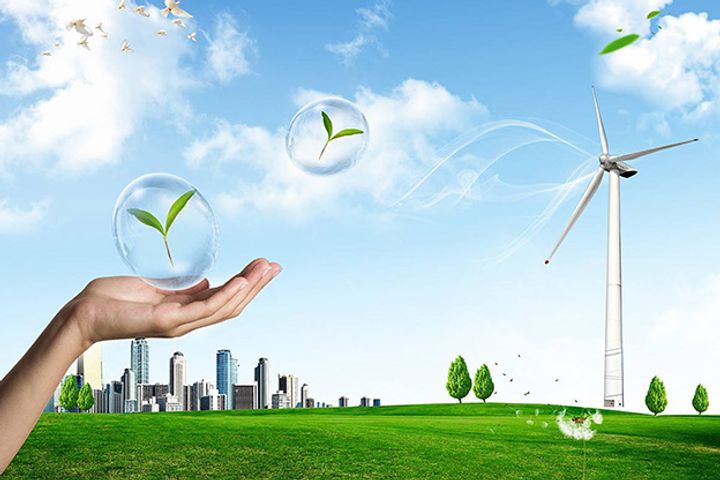 China's Administrative Regions Unveil New Environmental Tax Rates, With Most Polluted Areas Levying Highest Fines
China's Administrative Regions Unveil New Environmental Tax Rates, With Most Polluted Areas Levying Highest Fines(Yicai Global) Dec. 14 -- As China is set to levy environmental protection taxes from next year, many provinces, municipalities and autonomous regions have published their tax rates. Environmental protection tax is levied by local governments as a source of revenue. It is further indication of China stepping up the fight against environmental pollution.
At least 22 provinces and municipalities including Beijing, Shanghai, Guangdong, Jiangsu and Zhejiang have published their specific environmental tax rates, Yicai Global found.
The regions that have been most affected by environmental pollution have imposed higher tax rates. The Beijing-Tianjin-Hebei region has adopted higher tax rates allowed for air and water pollutants, with Beijing implementing the highest tax rate and some 13 counties around the city also imposing a higher tax rate. Fujian, Jiangxi and Liaoning and other seven provinces set the tax rates at the lowest levels required by law, while other places have set the rates above the minimum standards.
Environmental taxes aim to reflect social costs of generating and causing pollution more accurately, Qiao Baoyun, head of the China Academy of public finance and public policy at the Central University of Finance and Economics, told Yicai Global. The marginal social costs of the same amount of pollution vary from one region to another, depending on their development levels. Therefore, tax rates will diverge accordingly.
To ensure a smooth transition from the existing pollution fee system to the environmental tax system and to rein in corporate emissions, the new system requires heavy polluters to face heavier tax burdens while less polluting firms can pay fewer taxes.
Some leading chemical and energy state-owned enterprises that are under heavy pressure for environmental protection estimate that environmental taxes to be paid in the future will be substantially higher than pollution fees paid earlier, forcing them to upgrade equipment and technology, increase spending on environmental protection and cut pollutant emissions, Kenneth Leung, head of indirect tax section at Ernst & Young Greater China indirect Tax Leader, told Yicai Global.
Environmental tax law offers two types of tax cuts, said a person-in-charge of Fujian Baideli Industrial Co. Polluters with pollutant emission concentration levels that are 50 percent lower than the emission standards shall pay 50 percent of the environmental tax payable. Companies that have spent CNY1.2 million (USD181,500) on boiler renovation and exhaust treatment equipment and whose exhaust emissions are 30 percent lower than the emission standards shall pay CNY60,000 less in taxes per year. Enterprises with pollutant emission concentration levels that are 30 percent lower than the emission standards shall pay 75 percent of the environmental tax payable.
Although some companies in Beijing, which implements the highest tax rate, will see their tax burdens increase, the overall impact on corporate tax burden will be small.
After the new standards take effect, some 4,174 firms will see their tax burdens increase, accounting for 65.3 percent of the total, Li Yingjin said at the meeting. Among them, some 3,982 companies will see an increase of up to CNY100,000 in their annual tax burdens, representing 95.4 percent of the total. Some 164 enterprises will see an increase of between CNY100,000 and CNY1 million, accounting for 3.9 percent of the total, and some 28 businesses will see an increase of over CNY1 million, accounting for 0.7 percent of the total.
Environmental taxes are different from other taxes, and companies that perform their environmental protection responsibilities and manage to cut emissions shall pay fewer taxes, said Wang Jianfan, head of the tax administration department at the ministry of finance, in response to a question as to whether environmental taxes would create a heavy burden for companies. In that sense, the transfer of burden is appropriate, he added.